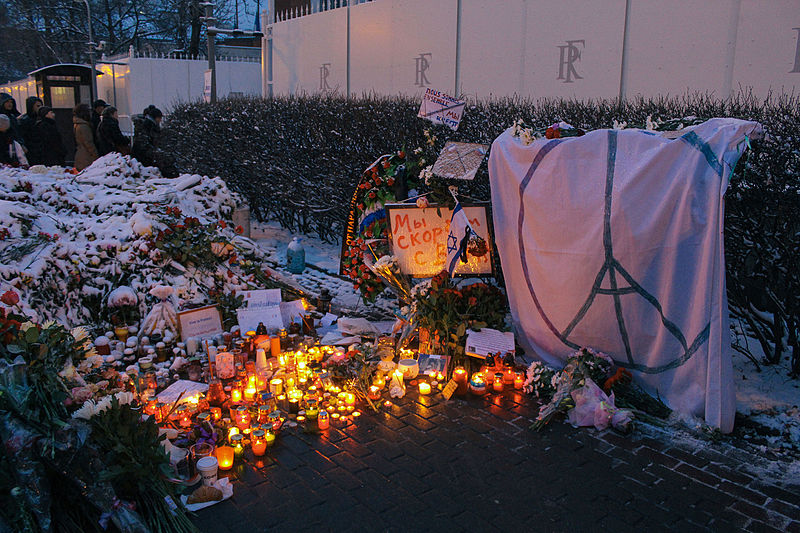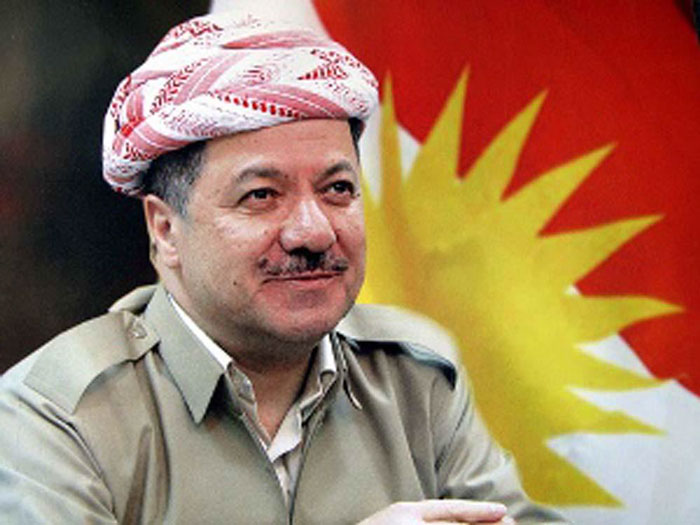Is A More Aggressive Strategy To Counter ISIS Needed?
Michael Lumbers: Don’t Get Fooled Again
Program Editor, Emerging Security
The attacks committed against harmless, innocent revelers in Paris last week were an outrageous assault on the freedoms so many in democratic societies take for granted. Alongside the suicide bombings in Beirut and the downing of a Russian airliner over Egypt, ISIS has demonstrated greater resiliency and sophistication than the White House has been willing to admit, and a capacity for stirring mischief well beyond the borders of the territory it controls in Syria and Iraq.
Yet responding with an intensified Western military campaign, including ground troops, against what remains an exaggerated threat would be ill-advised; lashing out in anger and revenge, emotions that helped propel the disastrous invasion of Iraq in 2003, is usually not a building block for sound policymaking.
While barbaric and cruel, the Paris attacks need to be put in perspective. ISIS, holding sway over mostly empty desert, does not command the resources of a Nazi Germany or Soviet Union. It cannot endanger the security or independence of infinitely more powerful countries in the West. Its apocalyptic ideology is rejected by the vast majority of people it claims to represent.
ISIS’ primary threat to the West is asymmetric in nature: sowing enough fear and confusion via gory beheadings captured on film or murderous, yet relatively small-scale, Paris-like assaults so as to induce the target country to inflict even greater harm on itself by implementing draconian surveillance measures at home or committing blood and treasure to draining military adventures abroad of dubious strategic value.
ISIS has thrived on a narrative of both hostility from Western infidels, which heightened military action would only fuel, and Sunni oppression, which cannot be addressed by the application of outside force. A more constructive response to Paris would see increased training of, and arms shipments to, regional actors, with a view to putting the onus on them for stamping out ISIS.
Taking the military lead against ISIS not only opens up the possibility of getting bogged down in another Middle Eastern morass, it relieves the pressure on local governments to undertake the sort of domestic reform that can provide the only long-term solution to resolving the Sunni-Shia chasm on which ISIS has capitalized.
Michael Kang: For Every Action, There Is A Reaction
Research Analyst Intern
Following the recent Paris attacks, it is clear that more reaction is required in the fight against ISIS. If France wishes, it could begin the process of invoking Article 5 of the NATO charter and call upon collective action in self-defence, which could bring much needed coordination in combating ISIS. As it currently stands, the fight against ISIS has largely been fragmented, with frequent infighting between the U.S.-led aerial campaign, Russian- and Iranian-backed efforts of Assad, and Western-supported militias fighting the regime in Damascus.
If a NATO operation took place, coalition forces could maximize available resources, such as the Special Operations Headquarters and Allied Joint Force Commands, to serve a more expansive and better organized effort. More military assets and forces would be available, giving the West additional tactical options in fighting ISIS. As well, a more robust NATO effort would increase cooperation with regional partners and invite Russia to coordinate its own military campaign, a possibility in light of ISIS’ downing of a Russian aircraft over Egypt.
The implications of an ISIS caliphate are an unstable Middle East, divided along political and sectarian lines. The longer ISIS is allowed to expand and operate its propaganda machine, the harder its toxic effects will be to reverse. After Paris, NATO has plenty of grounds for acting.
Michael Oshell: It Really Doesn’t Matter
Program Editor, International Business and Economics
The issue at the core of fighting ISIS is not who is bombing or how much ordinance is dropped on western Iraq and Syria. You cannot reduce the threat posed by ISIS solely through an air campaign. How does an air campaign protect civilian minorities from extermination? How does an air campaign address issues like kidnapping, high-level extortion or mass executions?
One must understand and acknowledge the origins of ISIS in order to have a chance of changing the narrative surrounding this conflict. This is as much an ideological battle as a physical one. Whereas war is waged in the desert of Iraq and Syria, it is also waged online through chat rooms. Much more must be done by individual states to increase the funding and intensity of de-radicalization initiatives and address the root causes of why individuals, increasingly from many Western nations, choose to join ISIS.
From 1979 to 1989, the United States spent over $1 billion funding the mujahideen in Afghanistan against occupying Soviet forces. It then failed to invest even a fraction of this number into educating the youth of the country after such a grueling conflict. This example illustrates one simple truth: strategic failures now will cost lives, money, and peace in the future.
Eric Morse: Proceed With Caution
Senior Research Analyst
ISIS should be pursued aggressively, with the caveat that Western ground forces are an extremely bad idea: they will simply act as a lightning rod for regional hatreds, cannot be sent in enough strength to fight the siege warfare that will be required, and Western publics will not tolerate high casualties. ISIS can be harassed and contained from the air, and in fact are being so, but in the end a ground confrontation against ISIS has to be undertaken by regional states.
As for the past week’s intensified French and Russian bombing of ISIS, the effect remains to be seen; it seems not to be well-targeted to this point. Also worth noting is that Raqqa, the so-called capital of the caliphate, is apparently not that important to ISIS, which is already moving assets to Mosul.
Sandra Song: A Short-Term Strategy and A Long-Term Objective
Program Editor, Canadian Armed Forces
Following the horrific attacks in Paris this past week, it would be appropriate under Article 5 of the North Atlantic Treaty to launch an attack against ISIS. Despite the fact that the attacks cannot be formally considered as a state carrying out an “armed attack” against a NATO member, it was still a bloody act that violated international law. In order to prevent similar events from occurring in the near future, forceful strategic measures may be necessary.
If NATO plans to tackle ISIS, it is a complicated matter. As ISIS is a decentralized radical group, NATO needs to strategize its mission of attack, in addition to targeting the organization’s head of operations. It must be made clear, in word and deed, that such attacks are targeting organized, dangerous groups rather than Muslim people as a whole.
For any military actions to be remotely effective in the long run, it would be beneficial to have the support of religious and political leaders throughout the Muslim world.
Overall, there needs to be a way to contain the immediate threat presented by ISIS while trying to address the root causes that compel people to join such organizations. Otherwise, there will be no way to eradicate ISIS.
Corinne Stancescu: Narrative Or Strategy?
Program Editor, Society, Culture and International Relations
It isn’t a more aggressive strategy that is necessary, but a different one. Instead of looking at the mistakes, or even the successes, of past counter-terrorism strategies, we should look at ISIS’ own strategy in order to properly reassess.
ISIS uses the sentiment of animosity towards Western interventionism, or historical Western imperialism throughout the MENA region, to gain followers and fighters. This policy dates as far back as the 1916 Sykes-Picot agreement to the 2003 invasion of Iraq. Going in even more aggressively than the current air campaign would just continue to fuel ISIS’ own narrative and recruitment strategy to a certain extent.
What could be more effective than a more aggressive military strategy would be one that looks at the local contexts and the history of the region, as opposed to just the security concerns of the West.
Jeremy Voisin: A Smarter Strategy Is Needed
Membership, Marketing and Communications Administrator
I’m not certain that a more aggressive strategy is required in terms of doubling down on current efforts. Rather, a smarter and more unified strategy is needed. For example, deploying 20 bombs a week over Raqqa instead of 10 is likely to be far less effective than hacking into ISIS’ communications network or severing its source of heavy armaments.
A primary source of the group’s strength lies in its ability to recruit individuals from across the globe. An attack on that recruitment network would have the effect of starving the group of what it needs most, namely, radicalized people willing to fight and even die for the cause. It would also serve to render ISIS less dispersed globally and more confined to its base of operations in Iraq and Syria, which would make combating it far easier.
The uniqueness of the threat requires that it be fought on multiple fronts with the specialized support of multiple states. States should take on roles based on their individual strengths, as well as share intelligence to prevent future attacks and locate potential targets. A combination of military intervention, cyber attacks, surveillance, aid to Syrian rebel forces, and economic means is needed to address this threat.
Aishwarya Sahai: The Roots Are Most Important
Program Editor, Expanding Community
Would a more aggressive strategy combat ISIS effectively? I don’t think so, especially not brute military force. While the attacks in Paris have deeply affected many people around the world, we can’t lose our heads.
It’s important to remember where these attacks originate from and why young men and women gravitate towards radical groups. The attackers in Paris were from Belgium, not from Syria or Iraq. ISIS is not in an isolated location; it is capable of working remotely and garnering support from people all over the world, from all walks of life. The more important question is how do we support youth and keep them from getting involved in terrorist organizations? The more important battle is on the home front.
Additionally, attacking ISIS strongholds within Syria and Iraq may take out militant fighters, but it also breaks the infrastructure. While bombing the economic infrastructure may seem a good short-term solution, it is not a good long-term one. Always pull the weed out from the roots: strategically target ISIS’ source of money and offer support to those most susceptible to falling into its hands. Most importantly, it needs to be kept in mind that the Paris attacks are not solely a European issue. It affects all parts of the world and united action is paramount.
Hinna Hatif: A Multi-Faceted Problem That Requires A Multi-Faceted Solution
Program Editor, Women in Security
First and foremost, I will be referring to ISIS as NISIS (Non-Islamic State of Iraq and Syria), because the terrorist organization does not reflect Islam or Muslims and should not be given a platform to hijack the religion of 1.6 billion people.
The Paris attacks have caused outrage in the West. Since its creation in June 2014, NISIS has executed more than 10,000 people in Syria and Iraq, while gaining control over oilfields and oil wells. According to a Dubai-based energy analyst, the combined oil revenue from both countries makes NISIS around U.S. $3 million per day. The oil is exported to Turkey, where it is sold in the black market. Oil has become the most important source of income for NISIS. The reason behind the success of NISIS is not its outrageous doctrine, but its large pockets.
Abdelhamid Abaaoud, the alleged mastermind behind the Paris attacks, was radicalized in prison, where he served a year for armed robbery back in 2010. That is where Abaaoud first crossed paths with Fouad Belkacem, a fundamentalist who was serving a 12-year sentence. Belgium’s and France’s prisons consist of a disproportionally high number of ethnic minorities, which make them the perfect breeding grounds for NISIS recruitment. Putting men like Belkacem in the same place as someone like Abaaoud is what needs to stop. Governments need to pay more attention to NISIS’ online campaigns and find ways to shut them down. They need to take more measures to limit the spread of radicalization, especially in institutions like prisons.
The question of a more aggressive strategy toward NISIS is an important one to consider. The current refugee crisis in Europe has been caused by continuous aggression in the region. Increased aggression is not going to put an end to NISIS unless very specific locations are targeted and its war equipment is destroyed. NISIS leaders need to be shamed for all the atrocities they have caused, so that potential recruits can see them for what they are: inhuman. Schools that teach NISIS ideology in Syria, Iraq, Afghanistan, and the rest of the Middle East and North Africa need to be closed immediately.




